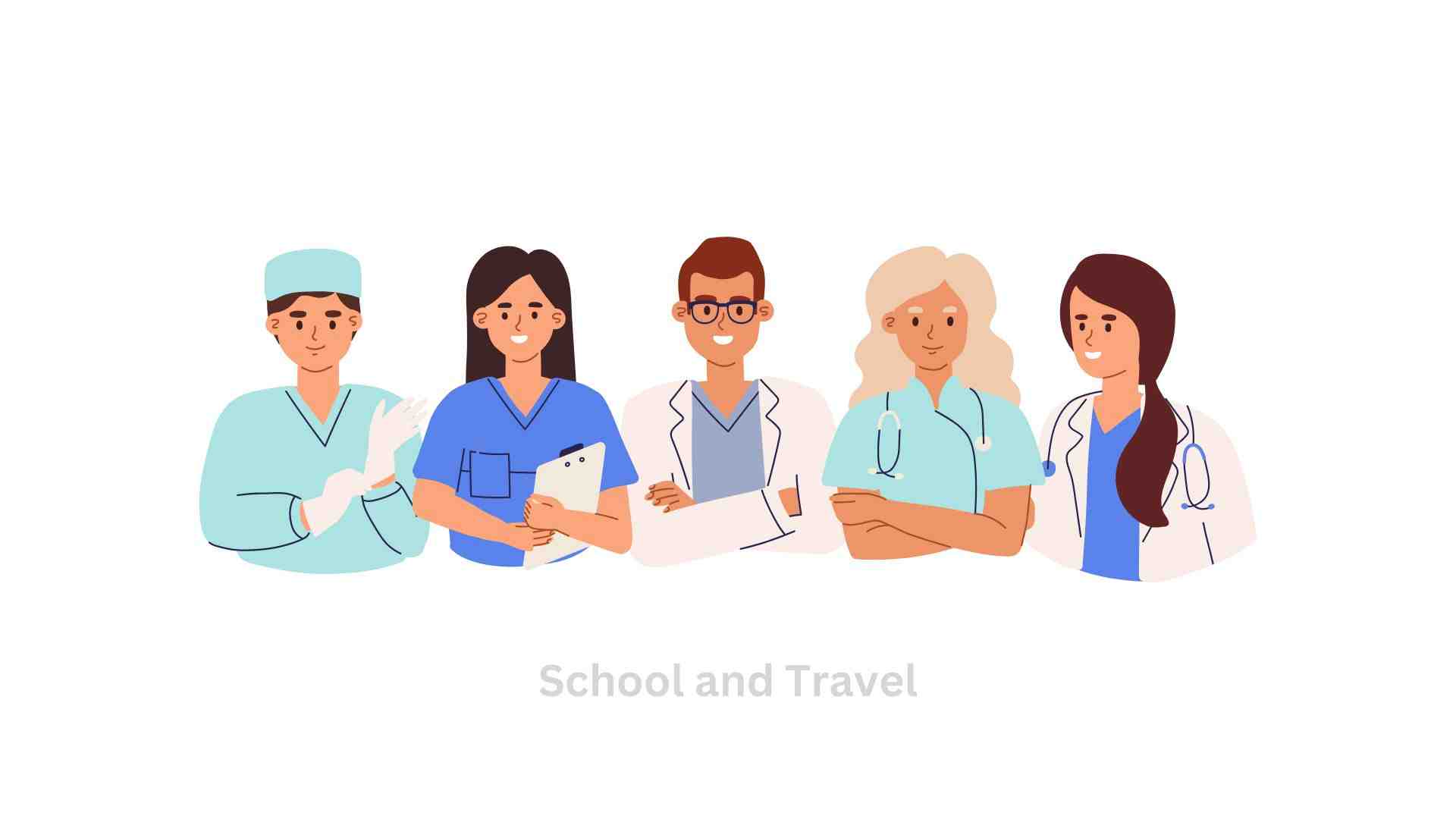Respiratory therapists are essential professionals in the healthcare industry.
These experts evaluate, observe, educate, and formulate treatment plans for patients suffering from protracted respiratory sicknesses.
Respiratory therapists also help patients who require assistance breathing well, for instance, newborns and adults suffering from heart conditions.
This article explains the tips you need to know about being a respiratory therapist, the career path, and the associated FAQs.
Who is a Respiratory Therapist?
Respiratory therapists are professionals who assist patients suffering from health challenges that prevent them from breathing effectively.
They treat breathing conditions for patients of all ages. These healthcare experts evaluate patients and diagnose their medical illnesses.
They also carry out physical assessments on the chest to enable them to make correct diagnoses.
Furthermore, respiratory therapists conduct checks on patients and discuss with other medical professionals to determine treatment plans that will lead to steady recovery.
Is Respiratory Therapist a Good Career Path?
Yes, it is. Respiratory therapy is a rewarding career. This career allows you to connect with people from different cultural and social backgrounds.
Respiratory therapists are among the highest-earning professionals in the healthcare industry, with their potential for salary rise being awe-inspiring.
With 14% growth expected by 2031, the job outlook for respiratory therapists is much better than normal. By 2031, the number of jobs is expected to change by about 18,400.
As a respiratory therapist, you can choose between different professional settings, from hospitals to research facilities to academic institutions.
Furthermore, respiratory therapists are in high demand worldwide, making these professionals enjoy some job security.
NB:
Respiratory Therapists use advanced devices to supply oxygen and define the gases in the blood samples or breathe. Also, these experts manage patients using artificial breathing equipment.
They explain diagnoses and take time to explain the medical conditions of patients and their loved ones.
What is the Job Prospect of Respiratory Therapist?
Based on records released by the Bureau of Labour Statistics (BLS), the number of job opportunities available for respiratory therapists is expected to grow by 14% between 2021 and 2031.
At this rate, there will be enough jobs for everyone coming into this career within this decade.
How Much do Respiratory Therapists Make in a year?
The average income of a respiratory therapist is about $130,000 per annum.
However, salary ranges differ according to years of experience, academic level, grade of professional certifications, work location, and employer size.
How to Become a Respiratory Therapist
Below are the steps to take to become a respiratory therapist:
1. Earn an associate or bachelor’s degree:
To become a respiratory therapist, you must first obtain an associate’s or bachelor’s degree program in respiratory care.
However, when choosing a school to enroll in, ensure that it is one that a licensed professional body recognizes.
Your chances of getting a good job are higher if you obtain a bachelor’s degree because employers believe holders are more knowledgeable than others with lower degrees.
However, you can still land an entry-level job with an associate degree.
Check the official site of the American Association of Respiratory Care to choose an accredited college if you have none in mind.
Throughout your education, you will take classes in the following knowledge areas: human anatomy, clinical care application, pathophysiology, biochemical respiratory theory, cardiopulmonary physiology, and pharmacology.
2. Pass the credentialing exam:
To become a respiratory therapist, you must pass the American Association for Respiratory Care accreditation exam.
There are two credentials: the Certified Respiratory Therapist (CRT) and the Registered Respiratory Therapist (RRT).
The CRT is the certification awarded to those with a low score on the American Association for Respiratory Care certification exams.
On the other hand, individuals who get a high score on this exam will not only earn a CRT certification but will be qualified to take the Clinical Simulation Examination, the qualifying exam for the Registered Respiratory Therapist (RRT) certification.
RRT is a credential that serves as proof of excellence for respiratory therapists.
3. Earn a state license:
To practice as a respiratory therapist, you must obtain a state license. This applies to every state in the United States except Alaska.
The requirements to obtain a state license differ from state to state. At the same time, it takes about one to two years to renew a license in some states of the US.
4. Obtain professional certifications:
Once you have obtained good experience as a respiratory therapist, ensure you proceed and earn a couple of professional certifications.
The American Association for Respiratory Care offers several highly recommended certifications for respiratory therapists.
Although it is not legally compulsory for respiratory therapists to obtain certifications, it is advisable to do so because they prove an individual’s commitment to the field.
Examples of certifications available to respiratory therapists include long-term care, neonatal-pediatrics, and surface and air transport certifications.
How Long Does it Take To Be a Respiratory Therapist in the US?
The duration it takes to become a respiratory therapist in the United States depends on the degree program you enroll in.
Those who enroll in an associate degree program would spend just two years to complete it, while it takes up to four years to complete a bachelor’s degree program in respiratory therapy.
How Long Does it Take To Be a Respiratory Therapist in Canada?
Respiratory therapists are mandated to successfully complete a comprehensive three-year program in a college or university, including theoretical coursework in respiratory therapy and practical clinical training.
How Long Does it Take To Be a Respiratory Therapist in the Philippines?
The Bachelor of Science in Respiratory Therapy is a comprehensive four-year academic program designed to equip students with the knowledge and skills to proficiently administer therapeutic respiratory care interventions to individuals suffering from cardiopulmonary illnesses.
What You Should Know As A Respiratory Therapist
1. Team Work:
You must educate your patients about alternatives and address their concerns as you work together.
To achieve mutual comprehension, you must also pay attention to your patients’ and coworkers’ wants and worries and respond appropriately.
Paying attention to details will enable you to achieve this accurately without any errors.
2. Problem Solving:
Respiratory Therapists assess patients’ conditions, confer with other medical experts, and provide patients with the most suitable therapy.
If you enjoy figuring things out, you may have an advantage when fixing problems.
This will help you ask relevant questions, enabling you to make an accurate diagnosis.
3. Critical thinking:
Correctly evaluating every detail a patient gives you is vital for success as a respiratory therapist.
Possessing critical thinking skills will enable you to achieve this before determining a treatment plan that will accelerate recovery.
4. Empathy:
Working as a Respiratory Therapist requires frequent patient contact and group efforts.
Taking care of patients promptly while ensuring the correctness of their diagnoses and treatments will require careful attention to detail.
Frequently Asked Questions (FAQs) on Respiratory Therapists
Respiratory therapists in California, Alaska, New York, and Hawaii make more money than others in any other state in the US.
A respiratory therapist is a job that involves working for many hours without stopping. It is understood that respiratory therapists work based on a 12-hour shift in most parts of the US.
The most challenging classes in a nursing program are those in pharmacology, microbiology, anatomy, and physiology.
Intensive Care Unit Nurses, Emergency Department Nurses, and Neonatal ICU nurses are the most stressed nurses across the globe due to the intensity of their jobs.
Conclusion
Respiratory therapists are vital specialists in the healthcare field. They assist patients suffering from health challenges that prevent them from breathing effectively.
This career offers you an opportunity to connect with people from different cultural and social backgrounds, and the salary potential of this job is awe-inspiring.
To become a successful respiratory therapist, ensure that you don’t permanently close the door to professional learning and stay in touch with what is new in the field.
Awesome one; I hope this article answers your question.
Editor’s Recommendations:
- How to Become a Park Ranger Without a Degree (Career, FAQs)
- How to Become a History Professor (Meaning, Career, Tips, FAQs)
- How to Become a Reflexologist (Meaning, Benefits, Tips, FAQs)
- How to Become a Chocolatier (Meaning, Steps, Tips, FAQs)
- How to Become a Public Defender (Meaning, Steps, Job, FAQs)
If you find this article good, please share it with a friend.





